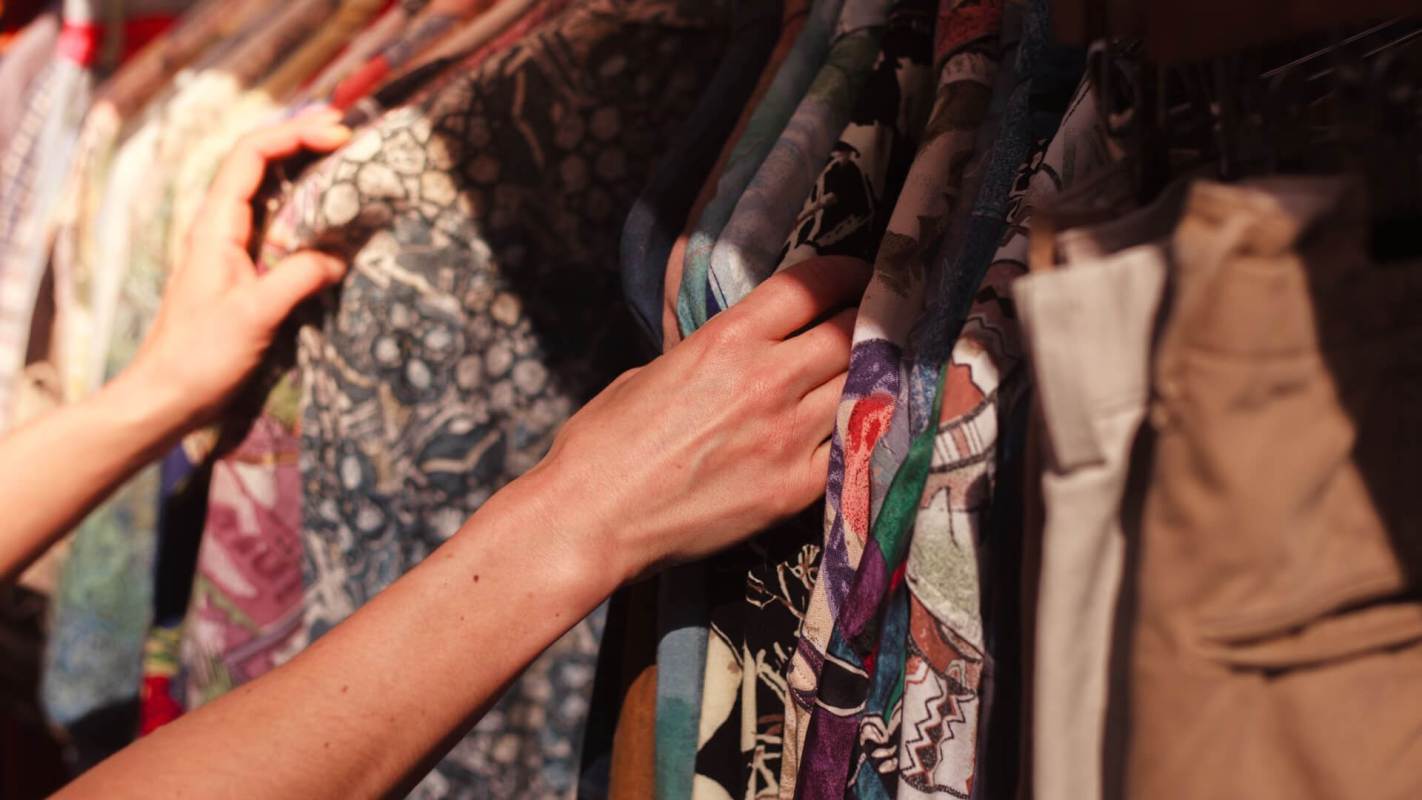With second-hand shopping booming on apps like Depop and Vinted, it's about time we got an app to organize our digital thrifting.
Enter Changing Room, a useful tool designed to help shoppers save money while keeping clothing out of landfills.
What is Changing Room?
Changing Room is a browser extension that finds second-hand fashion alternatives when users shop for clothes online.
While you browse products on popular fashion websites, Changing Room scours the internet for similar (but less expensive/more sustainable) items on websites like Depop, Poshmark, Vestiaire Collective, and The RealReal. Rental fashion is also featured.
If Changing Room successfully finds similar items, it will curate those into a list and send the user a notification.
It also rates the clothes you are viewing based on ethical and environmental credentials, such as labor conditions, carbon pollution, water use, and recyclability.
Why you should care about Changing Room
The number of people choosing to buy second-hand has skyrocketed in recent years, but aspects of the reselling market are still putting off some consumers.
The re-commerce industry has grown by 15% since 2021 — twice as much as traditional retail — and is set to be twice the size of the fast fashion market by 2030.
But Statista found that 43.2% of Americans had not bought anything second-hand within the last 12 months.
In a survey of 203 respondents, 23 people said they didn't buy second-hand because there was a limited choice, 22 because they thought second-hand clothes were unfashionable, and 20 because they found quality second-hand items hard to find.
"For consumers to adopt new behaviors, they need to be easy to implement, seamless to use, attractive and convenient in terms of affordability," Simona Azzolini, sustainability strategy director at Futerra, told Vogue Business.
How does Changing Room fix fashion's sustainability problem?
Second-hand fashion is widely touted as a solution to fast fashion's wasteful culture because it keeps clothes in circulation for longer.
Over the last 15 years, the number of times people wear an item of clothing before throwing it away has plummeted by 36%.
The fashion industry is the second highest polluting industry in the world after oil and gas, and it's responsible for 2% of planet-overheating pollution worldwide.
Clothing production is also a major contributor to droughts. The industry uses around 93 billion cubic meters of water a year, enough to meet the needs of around five million people. And it's an industry with exploitative working conditions. A typical garment worker works 14-16 hours a day, seven days a week, for less than living wage.
Changing Room highlights these problems in the rating it assigns to the items that its users are browsing — although founder Jeremy Yao has said that researching each product's environmental and ethical background is difficult, due to an opaque fashion industry.
He hopes that by empowering users to make sustainable purchases, Changing Room can pressure companies into becoming more open and sustainable.
"I'd like to think that by giving people more information about what they're buying, they can actually give a push to the industry — they can decide where they're going to put their money and they can signal to the market that they prefer ethically sourced garments or that they prefer second-hand products," Yao told the University of Columbia.
Want more? Follow The Cool Down on Instagram and join our Weekly Newsletter for cool stories and easy tips that save you money, time, and our planet.








